Becoming self-aware may sound like a grandiose idea, but true leaders are aware of their strengths and weaknesses.
Research shows a concrete connection between self-awareness and confidence. Self-aware leaders are more creative, more decisive, develop better work relationships, and are generally better communicators.
Self-awareness is the foundation for these positive outcomes:
- More effective leaders
- More employee satisfaction
- More profitable companies
Self-awareness allows leaders to identify gaps in their own management skills. This can help reduce unconscious biases that can colour decision-making. By knowing your strengths and weaknesses, constantly seeking feedback, and practicing lifetime learning, you can become more self-aware and use it to your advantage in your workplace.
Self-awareness is one of the most important aspects of emotional intelligence. Emotional intelligence is what gives you the ability to identify and understand emotions in yourself and others. It allows you to harness this awareness to manage your behaviour and your relationships.
The Trinity Of Self-Awareness
Venture capitalist Anthony Tjan describes it as the trinity of self-awareness: Know thyself. Improve thyself. Complement thyself.
- Understand who you are and what makes you tick.
- Take the time to learn what you need to improve and reduce your weaknesses
- Surround yourself with others that can complement your skills
It sounds simple, but in reality, it’s not so easy. Putting aside your ego and facing the truth is difficult. Being intellectually honest with yourself and committing yourself to do something about it takes commitment.
How To Build Self-awareness
The hardest part of developing self-awareness is reflection. Being able to view yourself and your actions through an objective lens is not easy. It helps to get insight from others you trust to be honest with you.
Throughout your career, you will hear all sorts of feedback. Whether it’s from your boss, your employees, or your peers, it’s important to listen carefully. When you hear feedback consistently that you disagree with, you need to understand that it does matter what you think. If that is the perception other people have of your leadership style, then that’s the lens they view you with. As they say, you can’t get help until you admit there’s a problem.
If you are not getting the feedback you need to determine your strengths and weaknesses, it’s up to you to seek it out from others.
Openness And Honesty
Many leaders have difficulty showing any signs of weakness in front of their employees. After all, they reason, as the boss they are supposed to have all the answers. Here’s a news flash, though. Your employees already know you don’t know everything. Showing you know your limitations demonstrates honesty and can inspire trust. When someone admits they don’t know something and asks others for help it provides your team with a great example that asking for help is OK.
Taking this a step further honest and self-aware executives should be able to admit when they have made a mistake. Although this may go against every fibre in your being it will exhibit vulnerability present you as an authentic leader and earn trust and loyalty.
Self-awareness allows you to project confidence and conviction while remaining humble enough to be open to new ideas. Self-aware leaders often seek out opposing opinions and are comfortable with others that will disagree with them because choosing the right path is more important to them than being right. It also makes for a more vibrant and open workplace culture.
A Lifetime Of Learning
Investor Warren Buffet, known or his voracious reading appetite, also makes it his habit to practice self-reflection. When he makes a critical decision, he writes down the reasons behind the decision. Years later, he will reflect on the decision and see what went right or wrong to determine if there are things he can learn the next time out.
You must be able to honestly assess your shortcomings and then committ to doing something about it. It needs to be a lifetime of learning to continue to improve and grow.
Executive Leadership Coaching Can Help You Be More Self-Aware
Self-awareness is one of the most important capabilities for leaders to develop. It can make you more effective as a leader and help your organisation grow faster. Executive leadership coaching can help you develop and grow the skills you need to succeed in today’s competitive business environment. An investment in executive coaching is an investment in your own development as well as your organisationss future. Executive coaching can unlock your potential and help you achieve the objectives to lead to a solid ROI.





